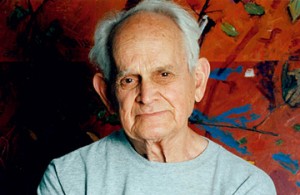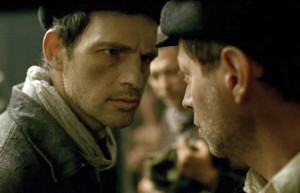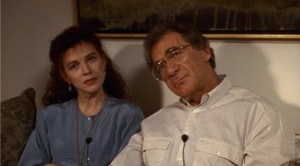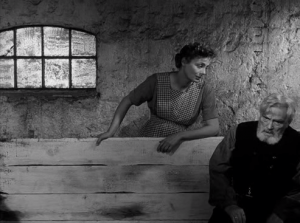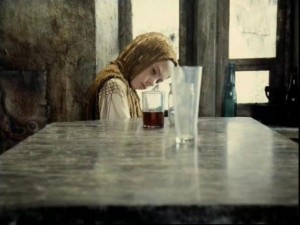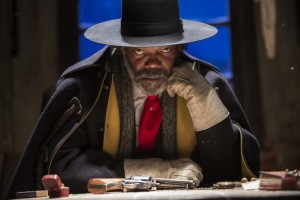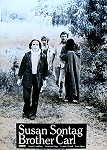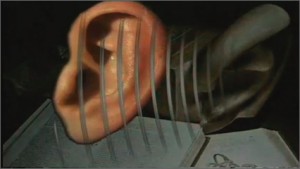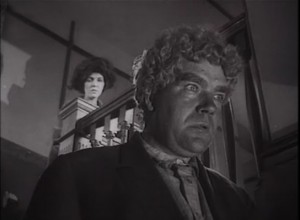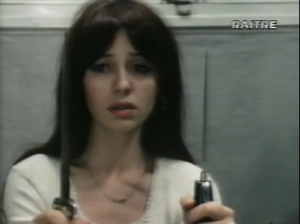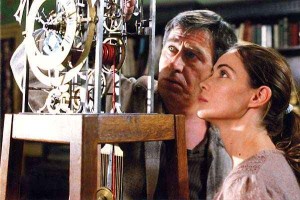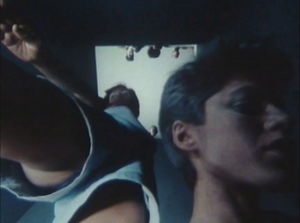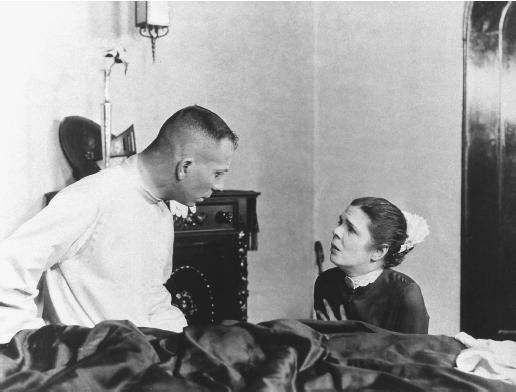The following interview with Alessandro Stellino appeared, in Italian, in filmidee #15, along with Italian translations of three of my essays –- “Entertainment as Oppression,” “In Defense of Non-Masterpieces,” and “Work and Play in the House of Fiction”. What follows is an imperfect and approximate version of this interview in its original English — respecting the structure of the Italian version, although in a few cases reconstructing my answers when I managed to lose the original emails. The interview was conducted over many emails, and I brought it to a close when I declined to reply to the question, “If you could teach a course on film history with the most possible freedom in rewriting the canon, how would your program be?”, which effectively would have obliged me to create an entire syllabus. -– J.R.
In the introduction to Goodbye Cinema, Hello Cinephilia, a book that has been particularly relevant for the founding of our magazine, you state: “It’s a strange paradox that about half of my friends and colleagues think that we’re currently approaching the end of cinema as an art form and the end of film criticism as a serious activity, while the other half believe that we’re enjoying some form of exciting resurgence and renaissance in both areas”. What fostered such Manichaeism, where you have cynics on one side and enthusiasts on the other? And where do you place yourself in this landscape?
I think what fostered this Manichaeism is a generational split, but I wouldn’t necessarily label the pessimists as cynics. The problem is that they feel left out because they’re too invested in a set of practices and assumptions stemming from a belief that film culture derives from a group of people watching a particular film in one location at more or less the same time and then responding to this experience on paper—a belief that now seems grounded more in the past than in the present or future. Part of me shares this belief (or habit), and that part laments the fact that my books or the other paper publications that I write for don’t sell more copies than they do. But another part of me, more dominant and more cheerful these days, enjoys the emergence of a new community that is less geographically or nationally based and more tied to the options of the Internet. This new community hasn’t yet found an economic base, which is both a disadvantage and an advantage: fewer people seem to be able to support themselves financially by writing about film, which is a pity, but those who do write about film, and who most often write about film online, are less subject to the industry pressures that affected “professional” reviewers in the so-called Golden Age of Film Criticism. This advantage was also operative when I first became involved with film criticism in the late 60s and early 70s, before such phenomena as auteurism and academic film criticism entered some version of mainstream discourse. Back then, most people who wrote about film wrote out of their passion, and arguably the same situation pertains to writing about film on the Internet today.
In the past issues of our magazine we translated texts by Pauline Kael and Andrew Sarris, and we plan to do the same with Manny Farber. You happened to know all of them and you also wrote beautiful pieces about them. What do you think is their main legacy as film critics and how do you think they would fit in this radically different scenario?
As far as I know, all three of these critics had little truck with the Internet and blog posting. But one important distinction about their legacies needs to be made: Farber and Kael were literary writers (which is why their film criticism has been collected by the Library of America) whereas Sarris can more accurately be described, even as his best, as a journalist. At least in my literary aspirations, I consider myself much closer to Farber than I do to either Sarris or Kael. I think most of the legacy of Kael can be connected to the quality of her prose and to her enthusiasm, not to the quality of her taste or her mind. Sarris’s taste and mind carry more weight for me, but not his prose. Farber’s mind, taste, and prose are all important aspects of his critical legacy for me.
These film critics used to display a huge knowledge that was not limited to the film field. I dare say that what made them so culturally relevant was precisely the ability to connect different arts (I think especially of Farber) and to link the esthetic and the social. And when you say that you “don’t think Susan Sontag was a great film critic” you also add that “she was the only one in that crowd [of the great New York intellectuals associated with Partisan Review] who understood and appreciated film in a wholly cosmopolitan manner, as a part of art and culture and thought”. Don’t you think that’s a quality missing in most of contemporary film criticism, often claustrophobically focused on cinema as a separate, disconnected reality?
It’s a quality that’s missing not only from most contemporary film criticism, but also from most contemporary writing, at least in English. And this is a lack that unfortunately limits the capacity of many critics to deal with some films that are concerned with larger issues. I’ve been noticing lately that many of the best and most prominent film critics based in New York — Manohla Dargis, David Edelstein, J. Hoberman, A.O. Scott — all seem to be having a certain amount of trouble in dealing with the seriousness of Son of Saul, even after they acknowledge both its seriousness and its uncommon skill. Their discomfort comes out in different ways in each case, yet they all seem to imply, in one way or another, that films aren’t supposed to ask as much from us as Son of Saul does. Dargis finds it intellectually repellent, Edelstein interprets the final scene in a questionable way and then accuses the film of copping out because of it, Hoberman shows a lot of caution about recommending it, and Scott even seems to question the fact that the film is “entertaining” (which he appears to mean not boring). The fact that László Nemes forces us to come to terms with issues that we normally wouldn’t think about (or “entertain”) seems to be the obstacle that they’re all grappling with, suggesting inadvertently — or so it appears to me — that Son of Saul is more serious than films are expected to be.
In “Notes Toward the Devaluation of Woody Allen” you ask yourself “why are American intellectuals so contemptuous of Jerry Lewis and so crazy about Woody Allen? Apart from such obvious differences as the fact that Allen cites Kierkegaard and Lewis doesn’t”. You wrote this in 1990, right after the widely acclaimed Crimes and Misdemeanors, stating that “as a director and filmmaker, after nineteen features, [Allen] remains strangely unformed and unrealized — not a creator of forms or even a distinctive stylist who can exist independently of his models”. I believe his outcome in the following decades hardly made you change your mind… am I right?
Yes. [Post-interview afterthought: Husbands and Wives might be an exception.]
You also dismissed the Coen brothers in the early Nineties. What do you think of their later work?
For all their skill, I’m not a fan. The Big Lebowski and Fargo are probably my favorites (despite some misgivings about both), but I haven’t seen all their films. (By contrast, I’ve so far seen all of Woody Allen’s.)
Have you ever change your mind about a film or a filmmaker?
[Note: This response is a paraphrase of what I originally wrote.] Sure. I hated some of what I now consider as my favorite movies the first time I saw them. Dreyer’s Ordet, for example, and Stalker. I never shared Pauline Kael’s position that one’s immediate reaction to and judgment of a movie has to remain unchanged for all of eternity. As human beings we change, and everything changes around us, and what makes certain films of the past more interesting is their relationship with mutations in contemporary cinema.
I was wondering if you have seen The Hateful Eight and I would like to know your opinion about the choice of shooting in Ultra Panavision 70. In Italy — or maybe I should say on Facebook — the fact that the film was already available for download with Italian subtitles a month before its official release in the theatres caused a big outcry. A lot of fans and critics said “I will wait till it’s on the big screen because I want to fight this battle along with the director”, others watched it right away on the computer or some other home screen. I didn’t like the film but that’s not what bothered me most: why should I stand with Tarantino knowing that very few directors (and probably none among the ones I love) could shoot in that format, and why this is the movie we must watch on the big screen, all of a sudden? (And I love to watch movies on the big screen, obviously.)
I’ve seen the movie and find it hateful and disgusting. The fact that it totally wastes its opportunity to use 70mm (and I saw it projected that way) is to me of little consequence or interest alongside its view of humanity in general and the audience in particular.
Coming from a family that used to run movie theatres for a long time what’s your relationship with cinema and the big screen now? Do you go there often or you tend to view more films at your place? Are you “dogmatic” about viewing films in a certain manner?
Nowadays, I’m less dogmatic, because even if I miss the giant screen at my home, where I watch most films, I prefer to have the access and time control of DVDs and Blu-Rays, which bring them closer to the printed page. And I like to think that I’m a reader and a writer even more than I’m a moviegoer. My viewing habits tend to fluctuate because I often work on several pieces at once as a writer, and being able to take a movie off the shelves, as you can with a book, and access a particular passage, is essential.
I’m a fond reader of your “Global Discoveries on DVD” column on Cinema Scope. Is there any specific film, or group of films, that you are still waiting for to surface from the realm of the lost treasures?
I don’t know if Susan Sontag’s four features qualify as treasures, but it’s easy to regret that they’re effectively lost (apart from Sontag’s documentary about Israel) until or unless some company like Criterion’s Eclipse brings them out. And quite apart from the absence of certain important and neglected experimental features, ranging from Ko I-Cheng’s Blue Moon to Caspar Stracke’s Circle’s Short Circuit, I’m really stumped by the unavailability of both Stroheim’s Greed (in a decent U.S. edition) and Rivette’s L’amour fou.
Many of Rivette’s films are still not available in Italy as well, though some of us had the chance to discover Duelle or Noroît on TV in the middle of the night thanks to Rai 3’s Fuori Orario, and record them on VHS — a ritual that the newest generation of cinephiles didn’t have the chance to take part in. I feel that filmmakers like Rivette or Ruiz, with the freedom of their approach to film form and storytelling, are true “ancestors” for many of the directors hailed by the “New Cinephilia”, like Albert Serra, Miguel Gomes…
Based on what I’ve seen — two features by Serra, three by Gomes — I’m not a big fan of either filmmaker, so I’m not a good person to address this question to.
I see. Maybe you could just comment on Ruiz and Rivette, suggesting the films you like most to young filmmakers and young cinephile readers of our magazine?
My favorite Rivette films are Out 1, Celine et Julie vont en bateau, L’amour fou, Out 1: Spectre, Paris nous appartient, Noroît, Duelle, Le Pont du nord, Haut bas fragile, and La belle noiseuse, in roughly that order. [Post-interview afterthought: I’ve just reseen Histoire de Marie et Julien, and would probably place this film at the end of this list.]
It’s harder to compile a definitive list of favorite Ruiz films because there are still so many I haven’t seen, but among my favorites, in no particular order, I would cite Mémoire des apparences, Mammame, La chouette aveugle, A TV Dante (Cantos 9-14), Colloque des chiens, Great Events and Ordinary People, On Top of the Whale, Le jeu de l’oie, Les trois couronnes du matelot, La ville des pirates, Manuel on the Isle of Wonders (a three-part Portuguese miniseries that’s a particular favorite), and Mysteries of Lisbon (another particular favorite).
In one of your entries for the column you wrote: “If there’s any overarching lesson I learned from teaching film history to undergraduates [is] that they know both less and more about history and film history than I did as an undergraduate back in the ‘60s. For a long time, it seemed like everything that teenagers knew about the past was more or less what they could glean from ordinary TV-watching. Today, thanks to the Internet, it seems like a great deal more is available, yet a good deal less is accessible if you don’t know where or how or even why to look for it — which means that, depending on their focus, North American students today are probably both brighter and dumber than their predecessors”. Do you think this could also be said of young cinephiles, who tend to have a limited knowledge of film history, the seemingly accessibility to everything “right now” making them live in a sort of present continuous forgetful of the past?
I’d say not so much forgetful (it’s not as if they knew something and then forgot it) as not very curious — or not curious enough. It’s important for young cinephiles to understand how and why Stroheim understands people (it’s important to keep this in the present tense) better than Spielberg or Scorsese does, and with even more intensity.

